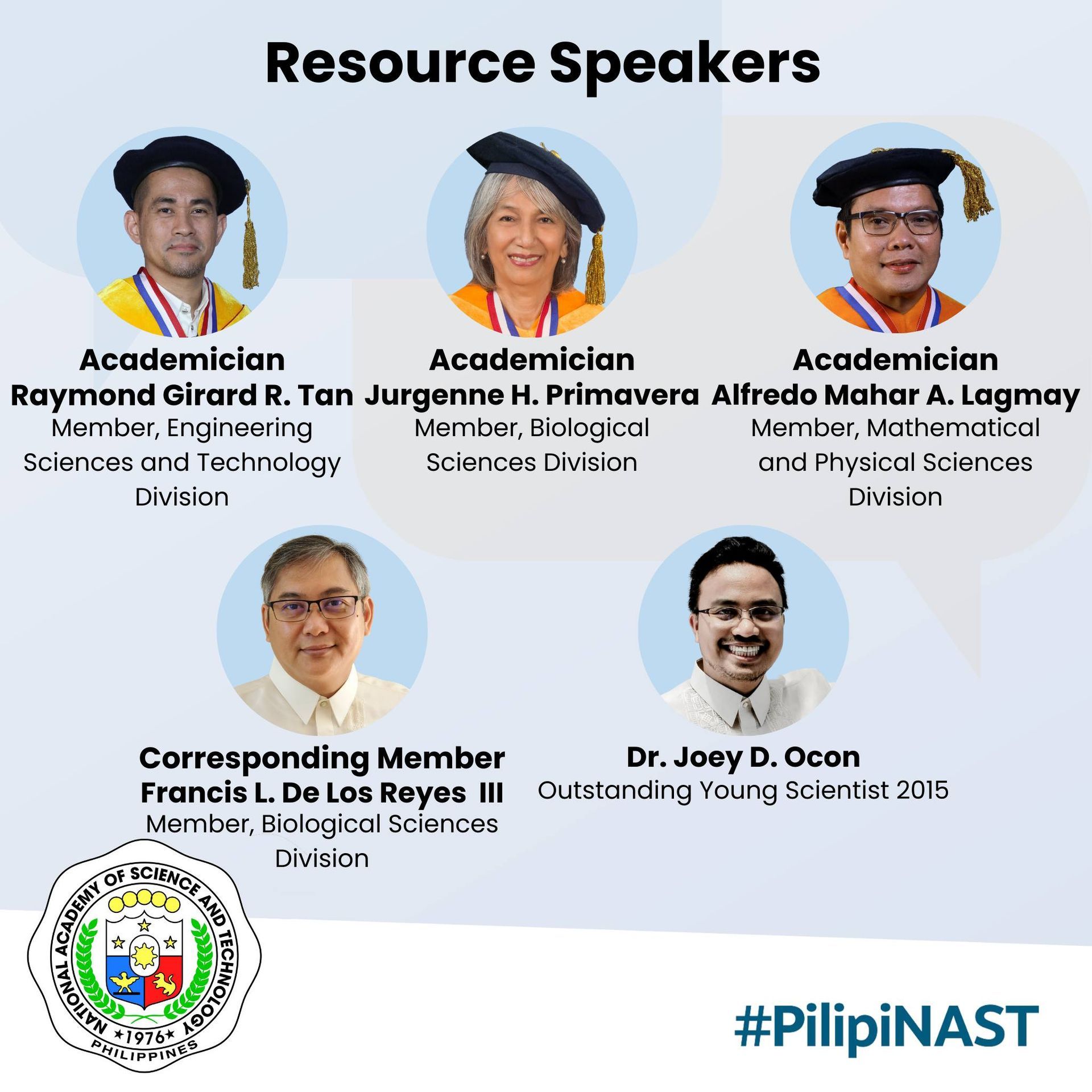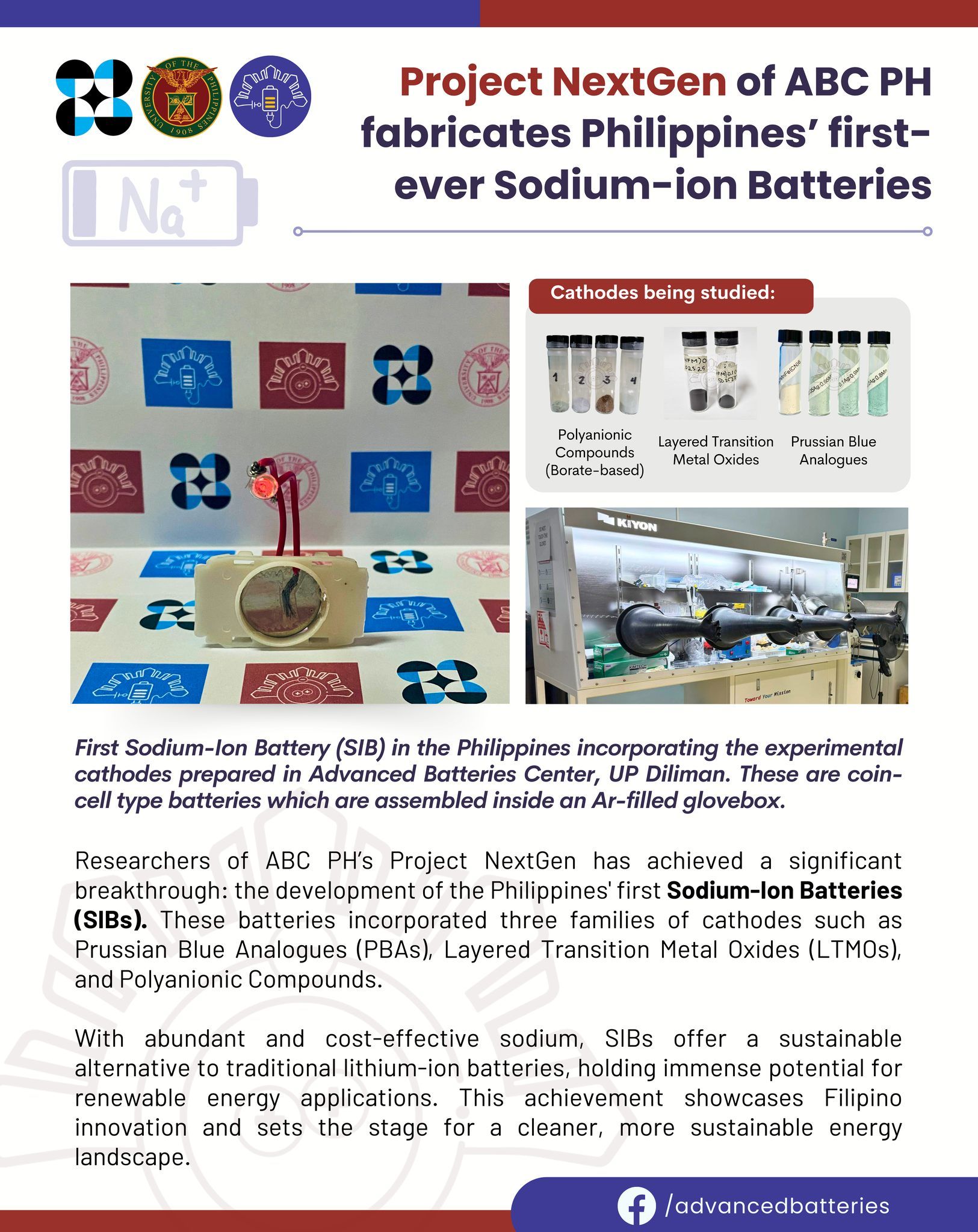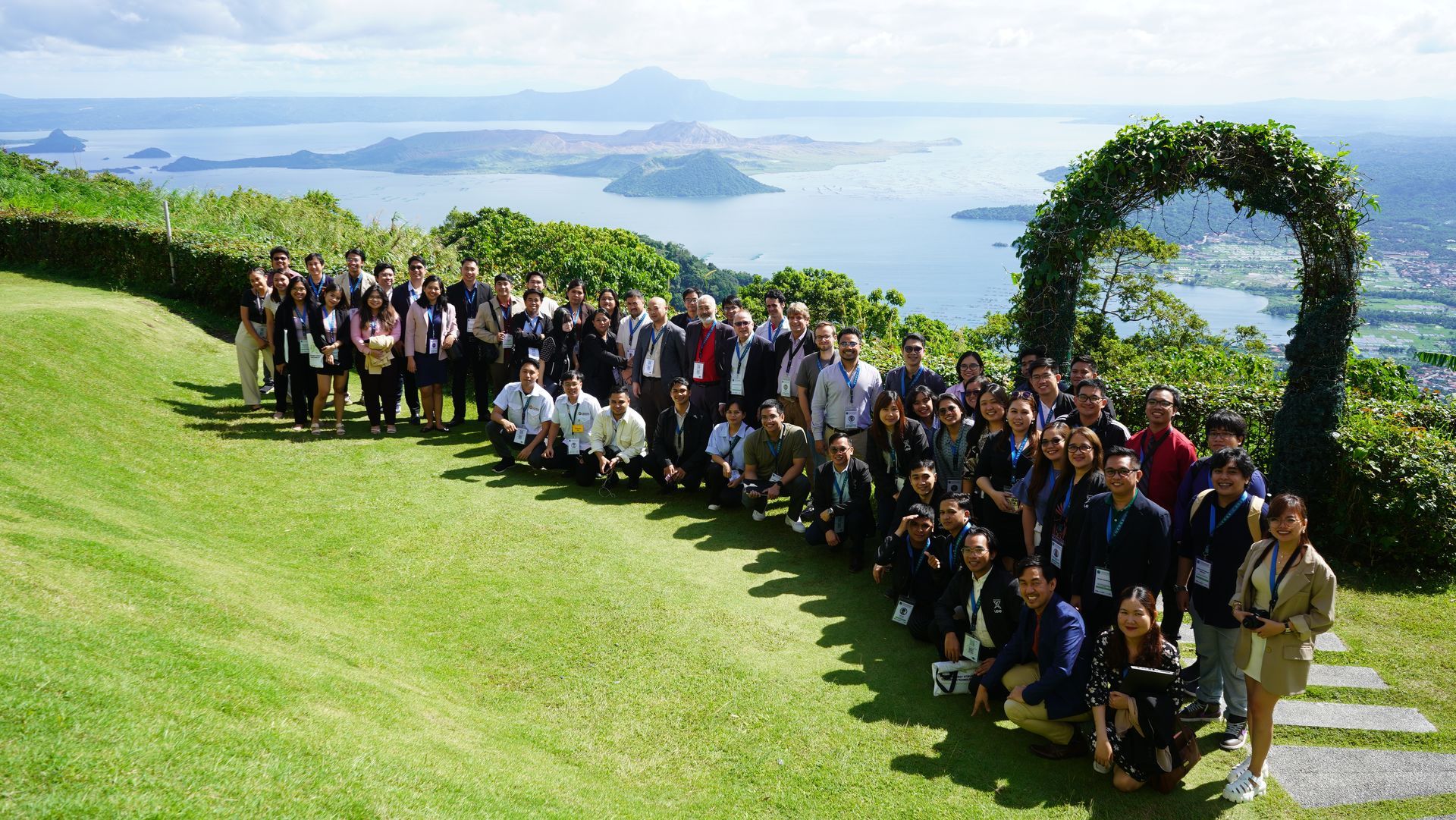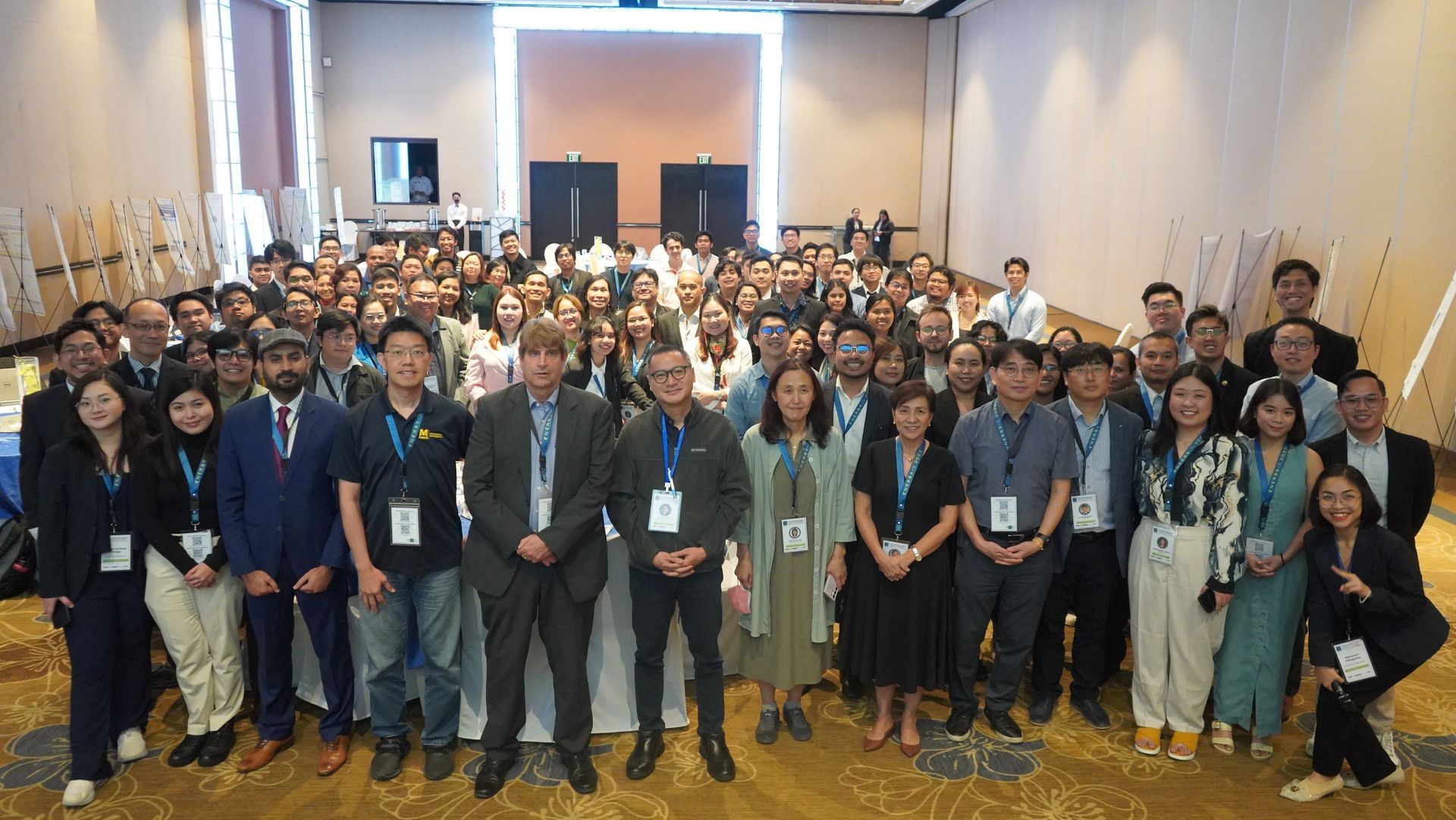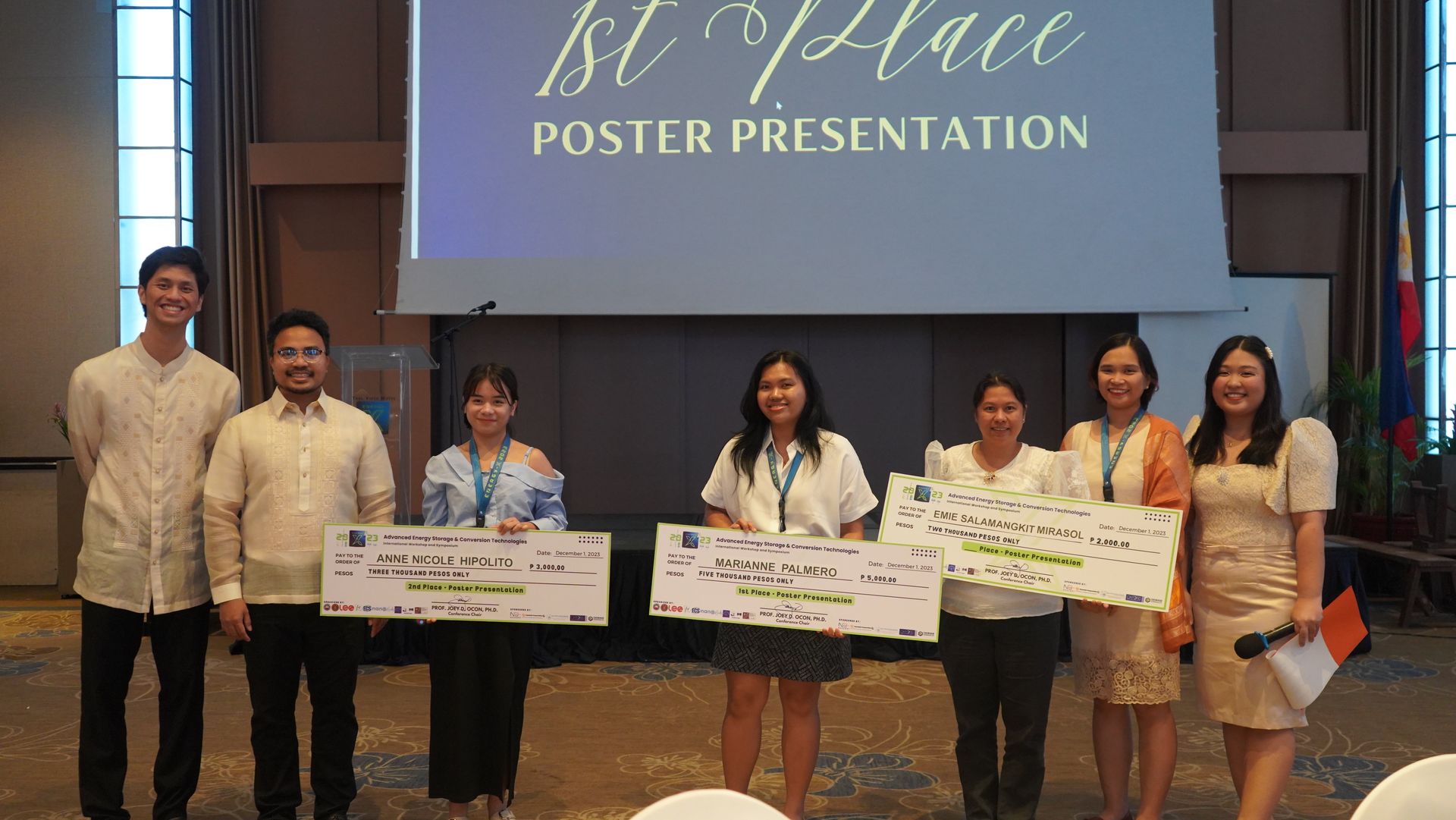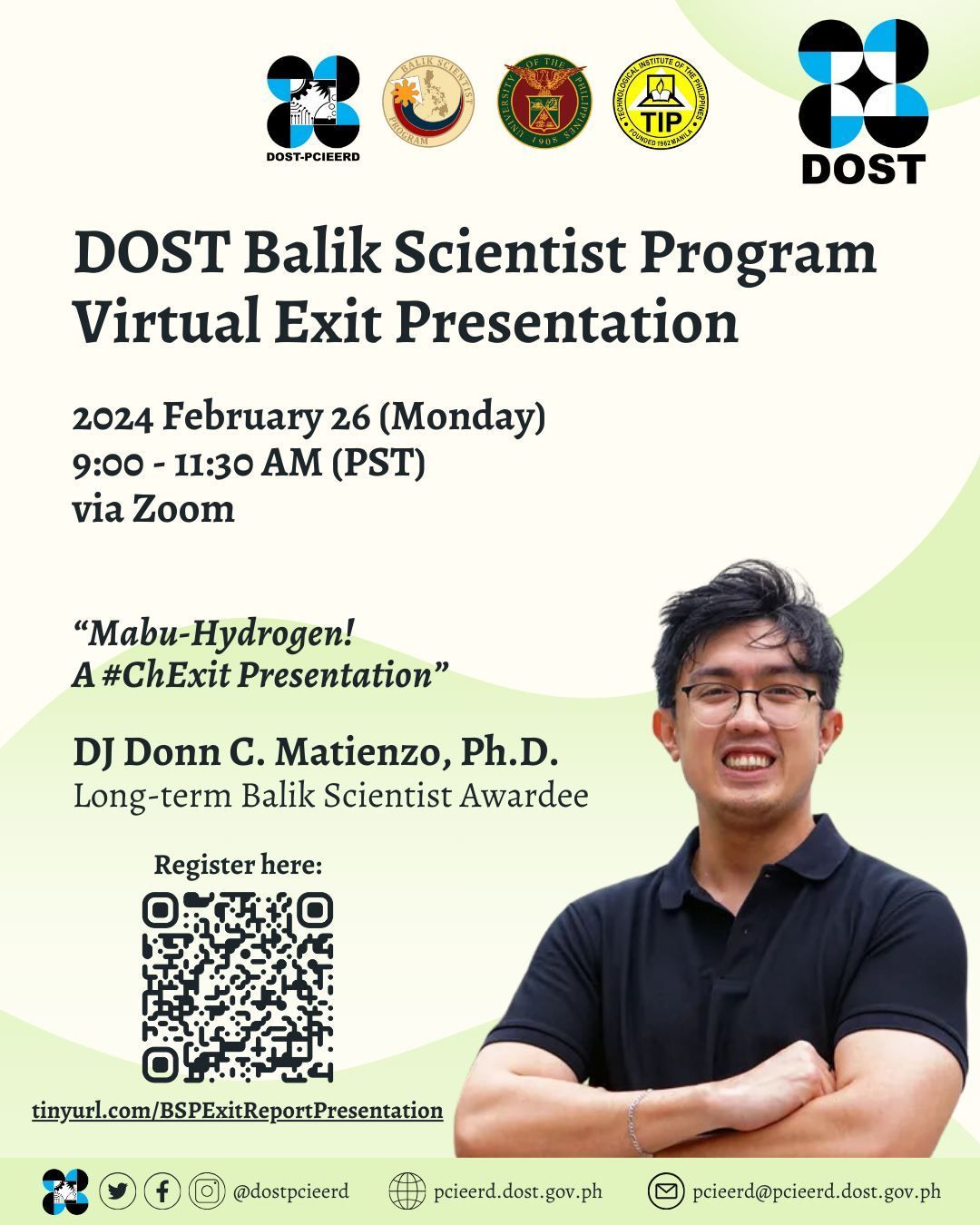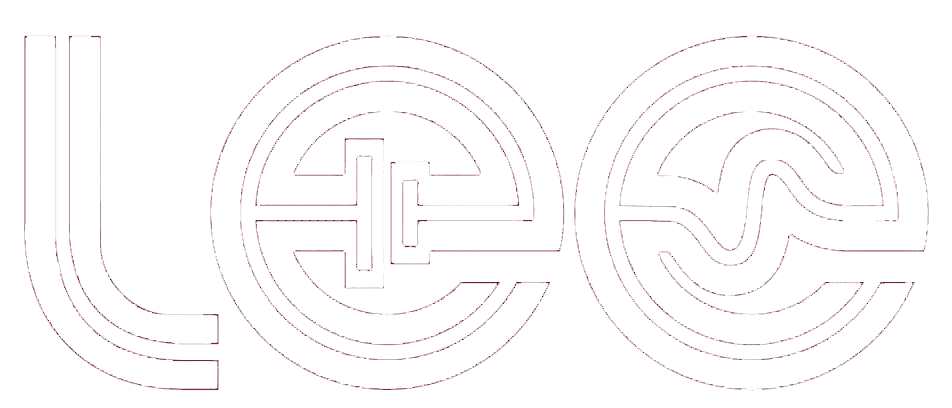LEE's Energy-X 2023 Sparks Innovation and Collaboration in Tagaytay City
Slide title
Local and international participants of the Energy-X Workshop get together at the garden of Taal Vista Hotel during lunch break for networking.
ButtonSlide title
Participants, speakers, and organizers of the Energy-X Symposium gather in preparation for the poster presentation session of the event.
ButtonSlide title
Winners of the poster presentation receive their awards during the socials night of Energy-X 2023. (L to R: Asst. Prof. Jan Goran Tomacruz, Prof. Joey Ocon, Anne Nicole Hipolito, Marianne Palmero, Emie Salamangkit Mirasol, Assoc. Prof. Julie Anne Paraggua, and Rosela Mae Lazaro)
Button
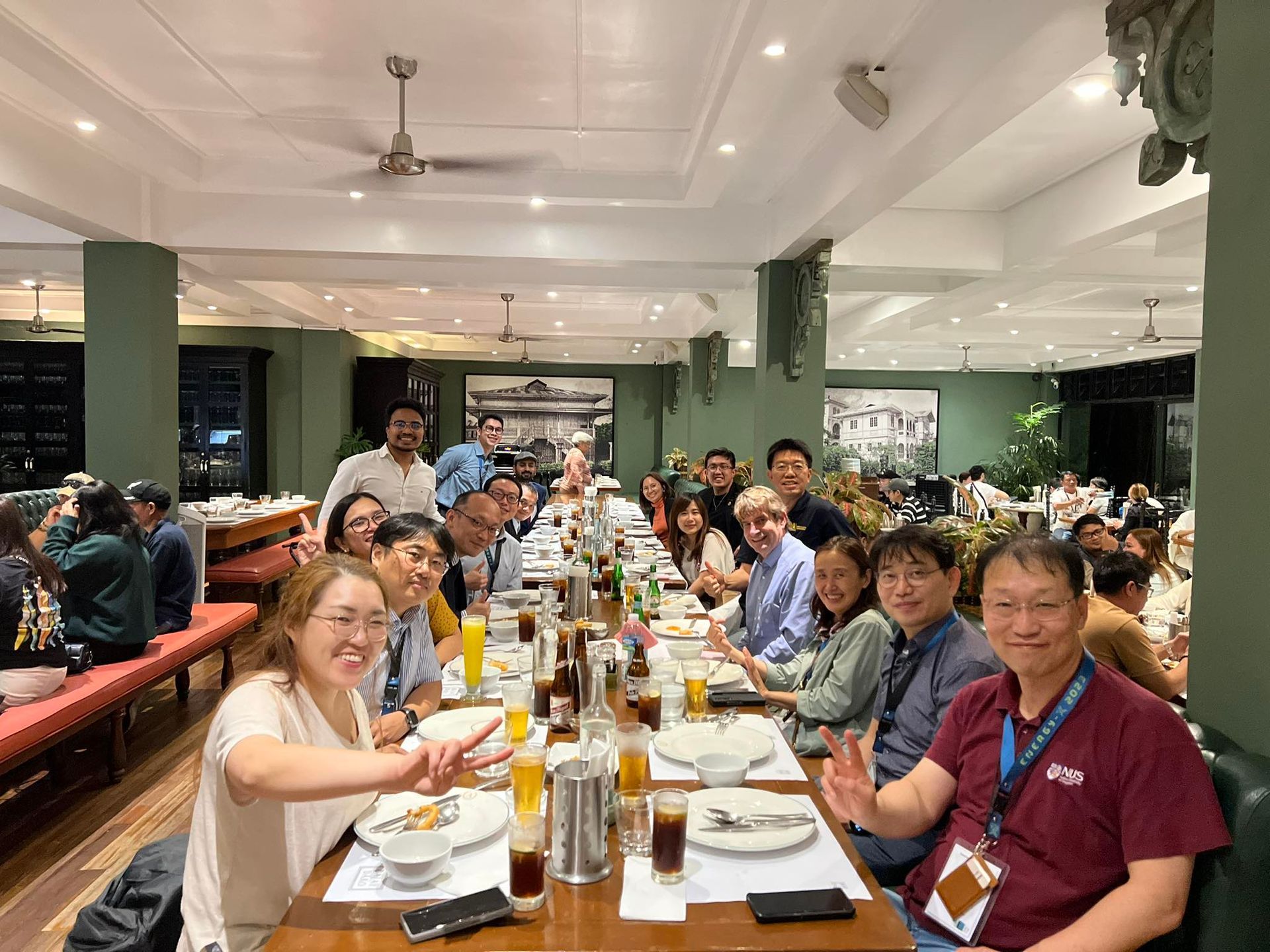
Slide title
Dinner and Collaborative Sessions with Invited Speakers at Energy-X
Button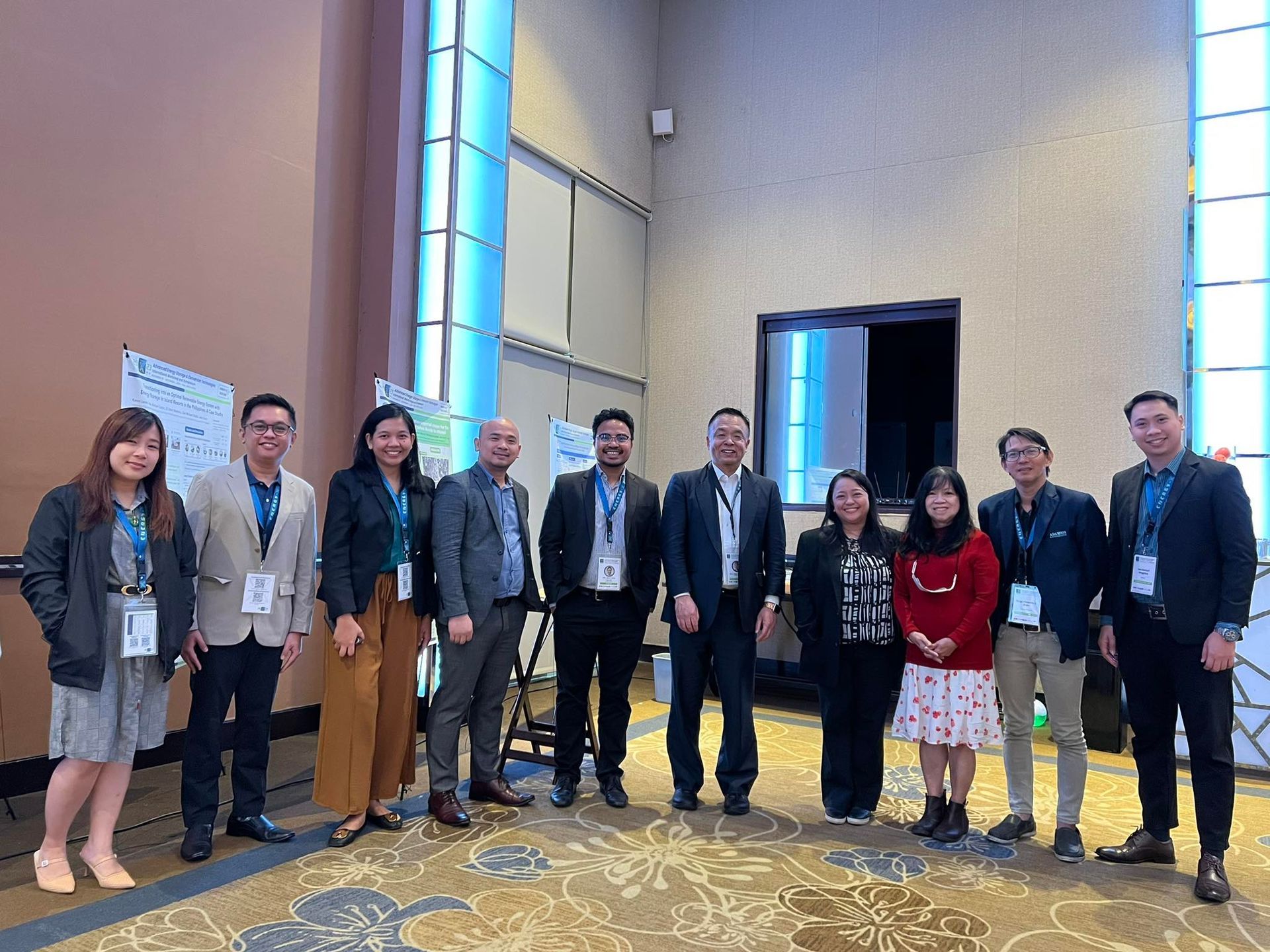
Slide title
Invited Speakers, Keynote Speakers, and distinguished participants at the Energy-X Symposium
Button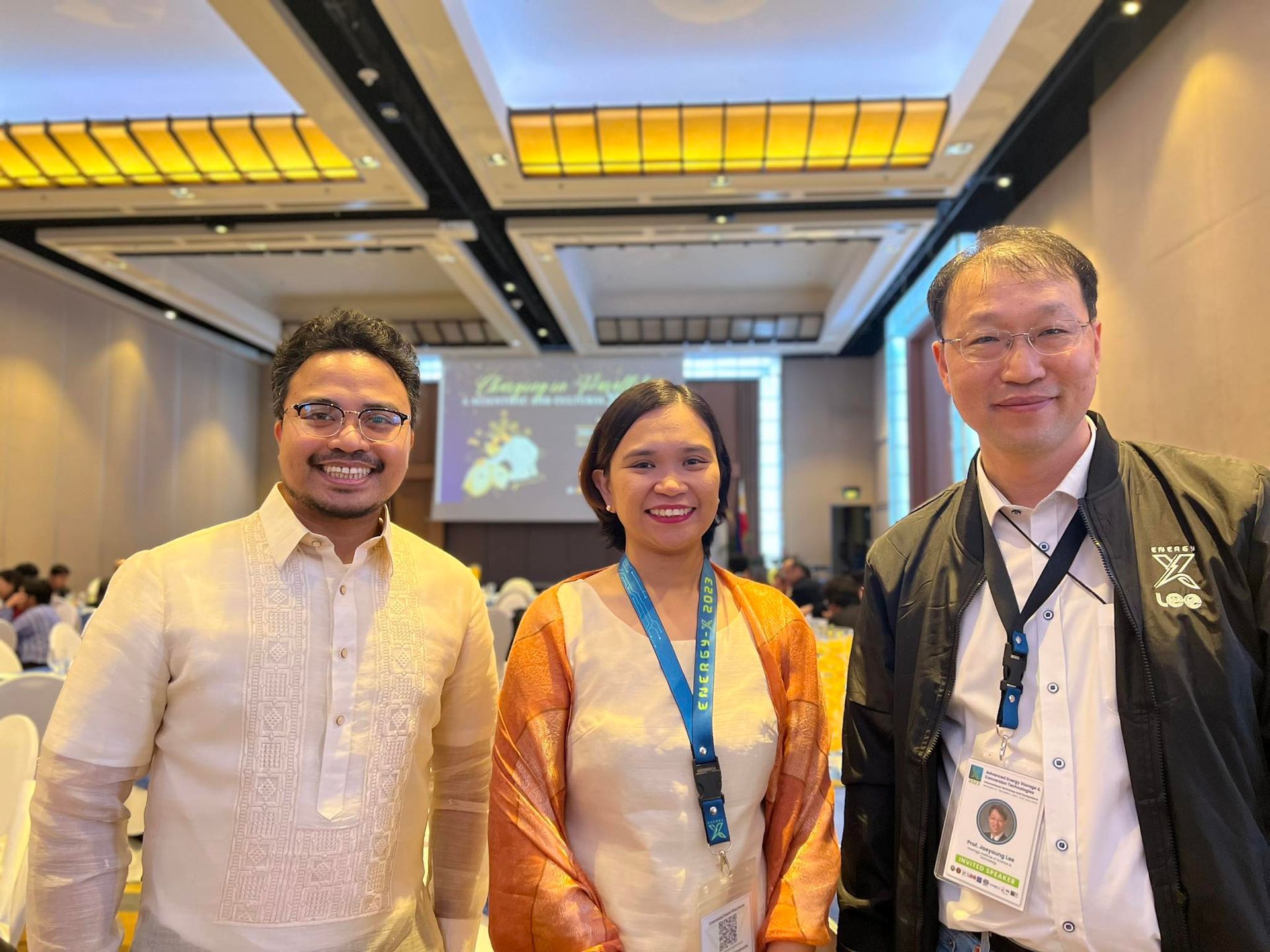
Slide title
LEE founders, Prof. Joey Ocon and Assoc. Prof. Julie Anna D.R. Paraggua, with Prof. Jaeyoung Lee of GIST ERTL
Button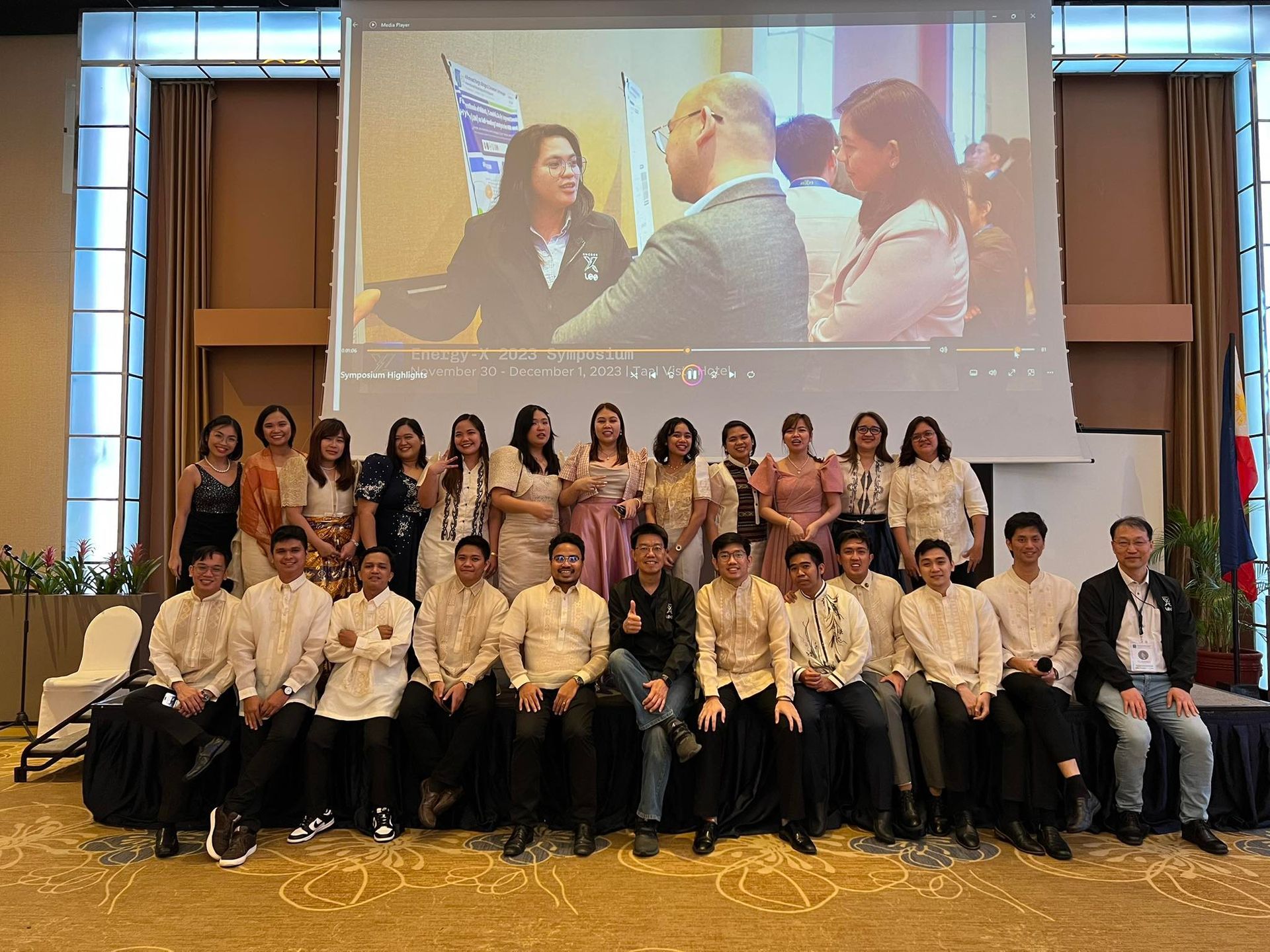
Slide title
Energy-X organizers after the event
Button
The workshop was followed by the symposium, which congregated over 112 participants with speakers coming from eight different countries. The symposium was welcomed by speeches from the undersecretaries of the Department of Energy (DOE) and Department of Science and Technology (DOST). Four keynote speakers and over 23 invited speakers shared insights into energy storage and conversion technologies, presenting studies from their respective laboratories and industrial advancements. The keynote speakers included Prof. Karl Andreas Friedrich, Ph.D., Prof. Allan Abraham Padama, Ph.D., Prof. Tetsu Yonezawa, Ph.D., and Prof. Po-Ya Abel Chuang, Ph.D. Discussions and abstracts covered various research scales, from atomic-scale studies utilizing density functional theory and kinetic models to cell-scale research, such as the design and development of electrodes, membranes, and other energy storage materials, and further extended to systems-scale research, featuring life cycle assessments of energy storage and conversion solutions. In addition to talks and discussions on the experts’ research pursuits and industrial endeavors, the Energy-X 2023 Symposium also hosted a poster session where selected researchers from local and international universities presented their respective research works. With experts and students from varied fields of expertise, the poster session served as a perfect avenue to further science communication and research collaborations among local and international groups alike. And most importantly, it also served as a good platform to encourage new members to join the ECS-UP community.
Energy-X 2023 came to a close with Charging in Parallel: A Scientific and Cultural XChange. The program began with icebreakers and games that lightened the participants’ moods after a long week of learning about different energy storage technologies. The Best Poster awards were also granted to the researchers who presented their works in a comprehensive yet aesthetic manner. The gala night’s highlight was a showcase of the different Philippine cultural dances as performed by the Bughaw Folkloric Dance troupe. The event was also graced by speeches from the University of the Philippines’ president and vice chancellor for research and development.
Overall, the event was a huge success because it provided an opportunity for knowledge-sharing and collaboration while highlighting the importance of various energy storage technologies and their role in sustainable development. This is the largest event LEE has handled since its founding, and we are thrilled with the turnout and engagement of attendees. Moving forward, the laboratory is dedicated to planning more events of this kind.
𝘛𝘩𝘪𝘴 𝘦𝘷𝘦𝘯𝘵 𝘪𝘴 𝘧𝘶𝘯𝘥𝘦𝘥 𝘣𝘺 𝘛𝘩𝘦 𝘊𝘐𝘗𝘏𝘌𝘙 𝘗𝘳𝘰𝘫𝘦𝘤𝘵 (𝘗𝘳𝘰𝘫𝘦𝘤𝘵 𝘓𝘦𝘢𝘥𝘦𝘳: 𝘋𝘳. 𝘑𝘰𝘦𝘺 𝘋. 𝘖𝘤𝘰𝘯) through 𝘵𝘩𝘦 𝘊𝘰𝘮𝘮𝘪𝘴𝘴𝘪𝘰𝘯 𝘰𝘯 𝘏𝘪𝘨𝘩𝘦𝘳 𝘌𝘥𝘶𝘤𝘢𝘵𝘪𝘰𝘯 - 𝘗𝘩𝘪𝘭𝘪𝘱𝘱𝘪𝘯𝘦-𝘊𝘢𝘭𝘪𝘧𝘰𝘳𝘯𝘪𝘢 𝘈𝘥𝘷𝘢𝘯𝘤𝘦𝘥 𝘙𝘦𝘴𝘦𝘢𝘳𝘤𝘩 𝘐𝘯𝘴𝘵𝘪𝘵𝘶𝘵𝘦𝘴 𝘶𝘯𝘥𝘦𝘳 𝘵𝘩𝘦 𝘊𝘺𝘤𝘭𝘦 6 𝘨𝘳𝘢𝘯𝘵𝘴 (𝘐𝘐𝘐𝘋 2018-008).
